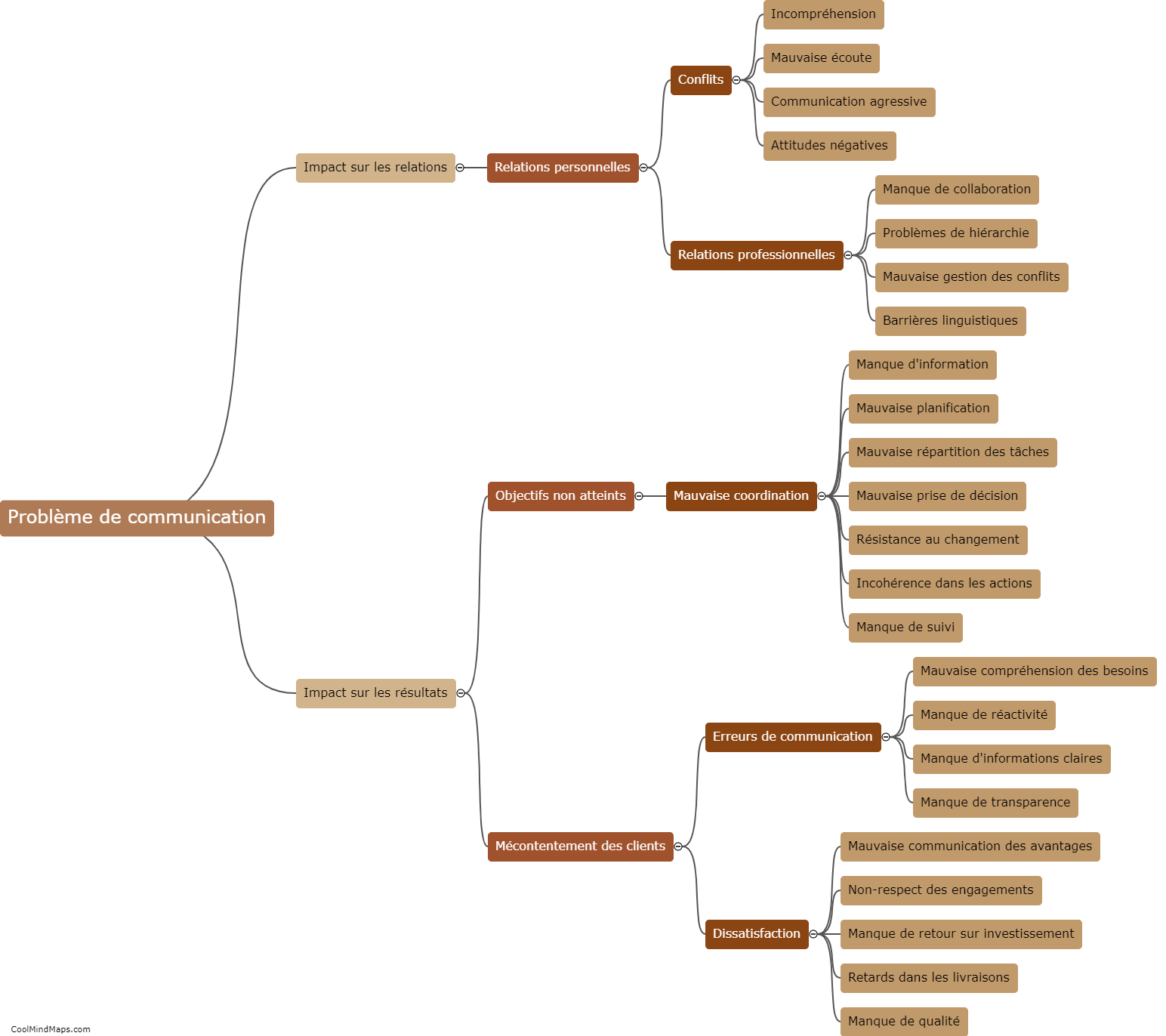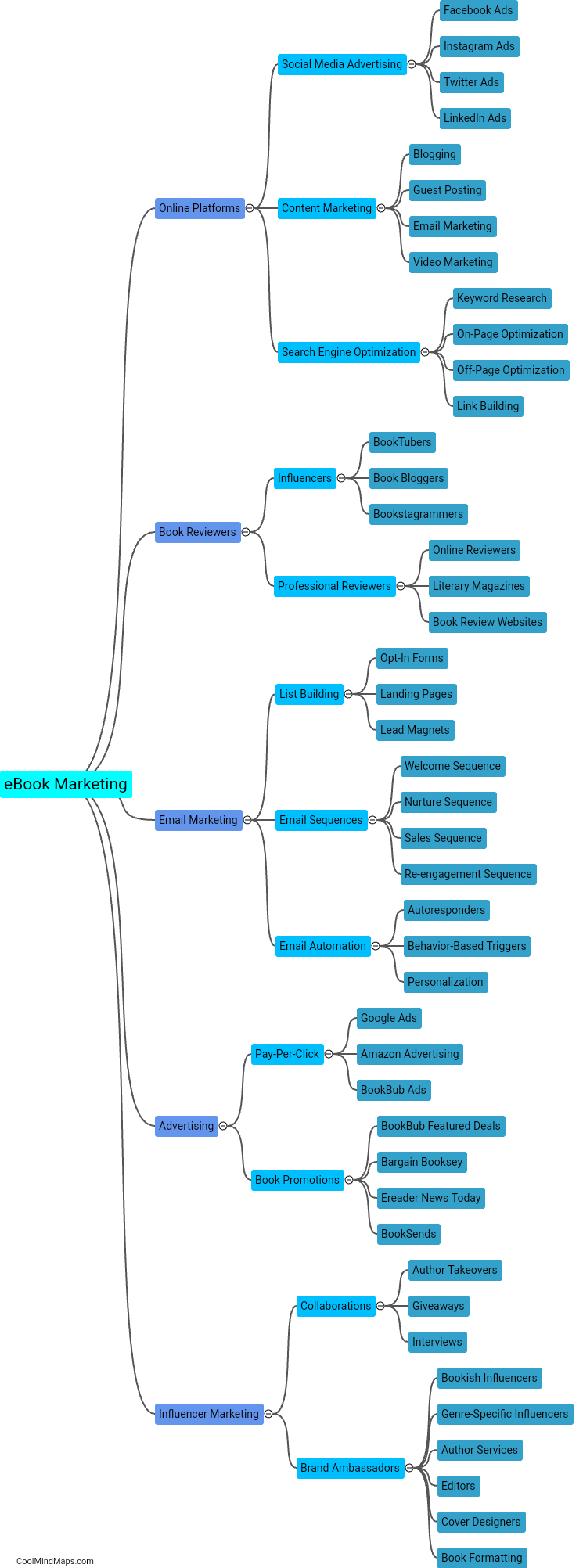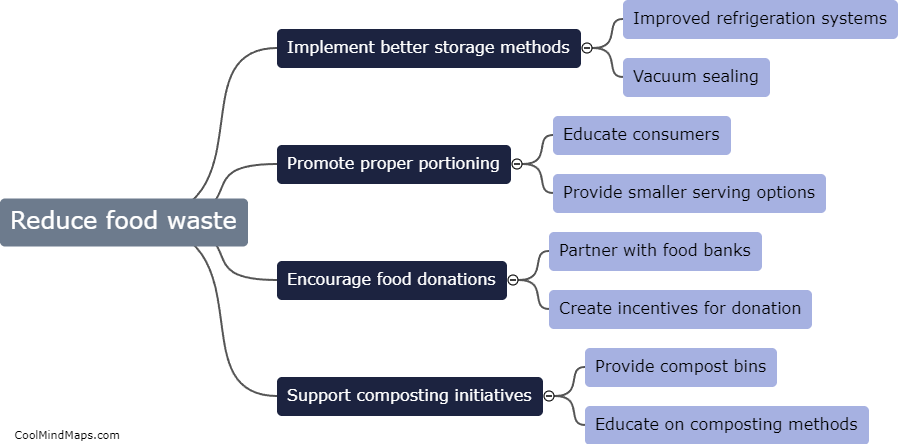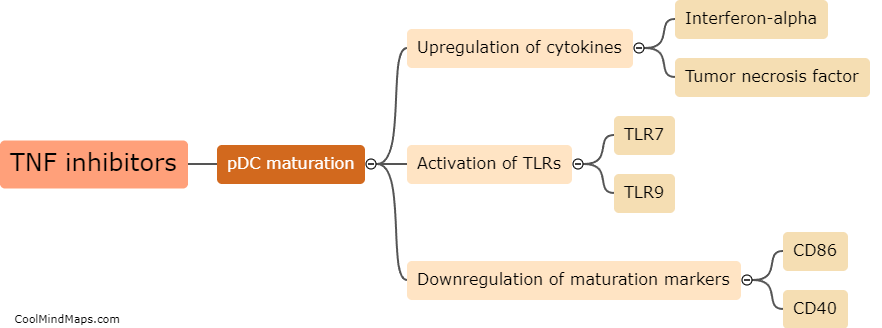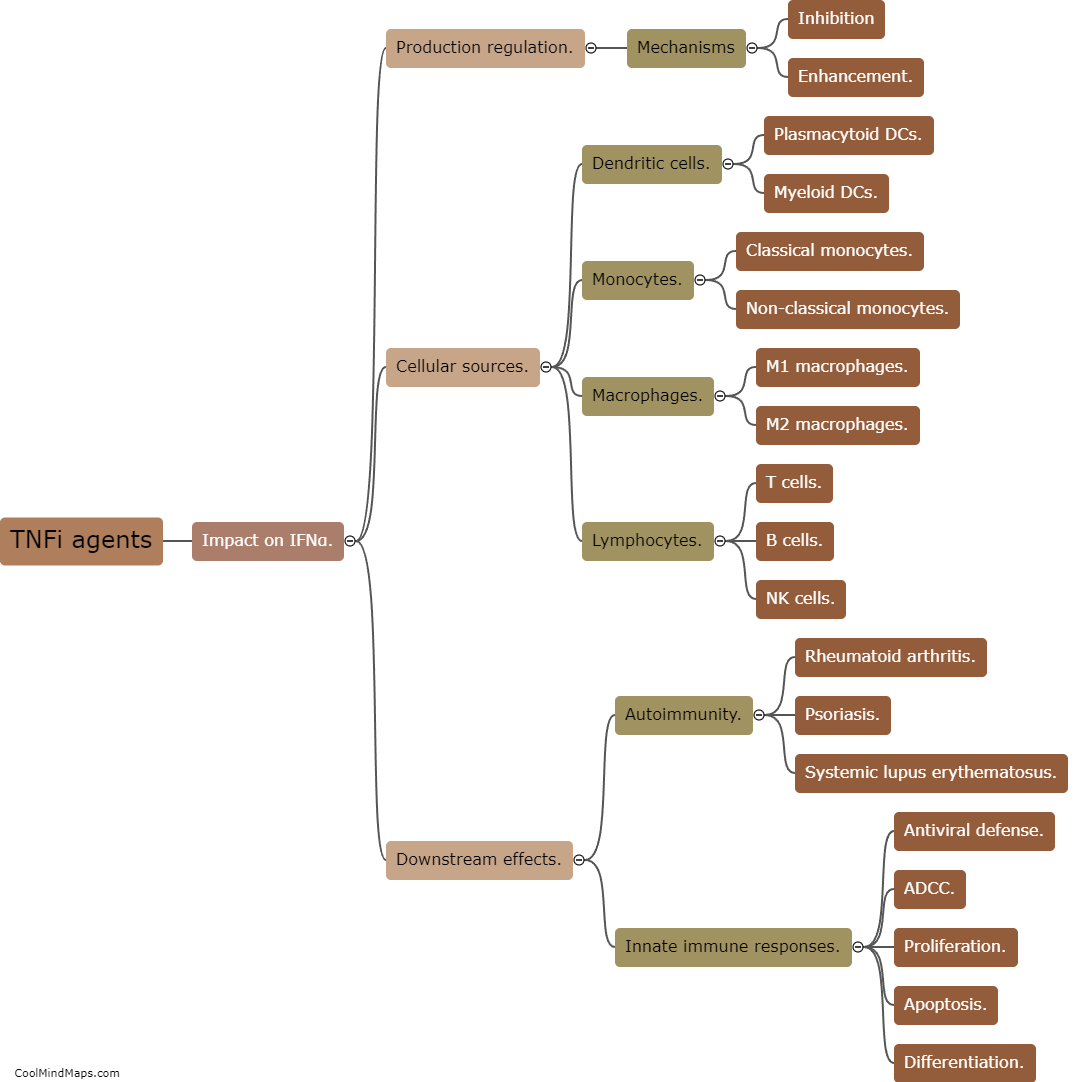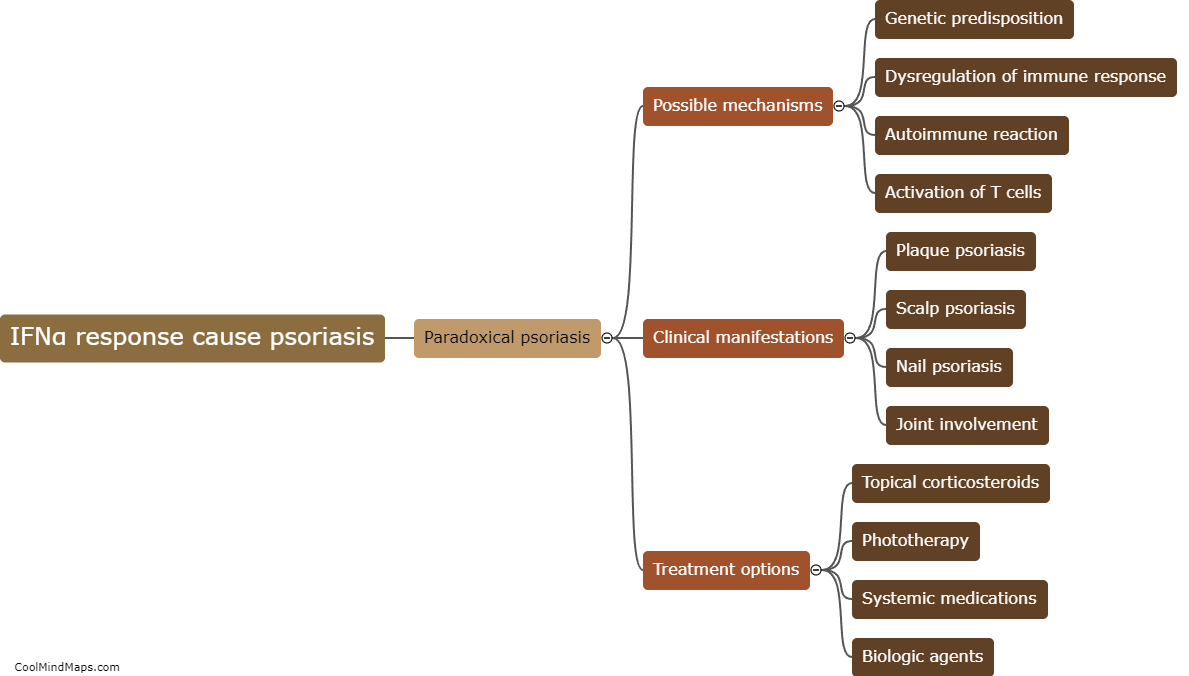How do TNF inhibitors block the maturation of pDC?
TNF inhibitors, drugs that target tumor necrosis factor (TNF), have been found to block the maturation of plasmacytoid dendritic cells (pDCs). This occurs through the inhibition of the signaling pathways that promote the maturation of pDCs. TNF is a key cytokine involved in the regulation of the immune system, and it plays a crucial role in the maturation of pDCs, which are a specialized subset of dendritic cells involved in antiviral immune responses. By inhibiting TNF, TNF inhibitors can disrupt the signaling cascades that promote the maturation of pDCs, ultimately leading to a suppression of their maturation process. This modulation of pDC maturation by TNF inhibitors can have important implications in treating various autoimmune diseases and conditions associated with excessive pDC activation.

This mind map was published on 12 July 2023 and has been viewed 115 times.
